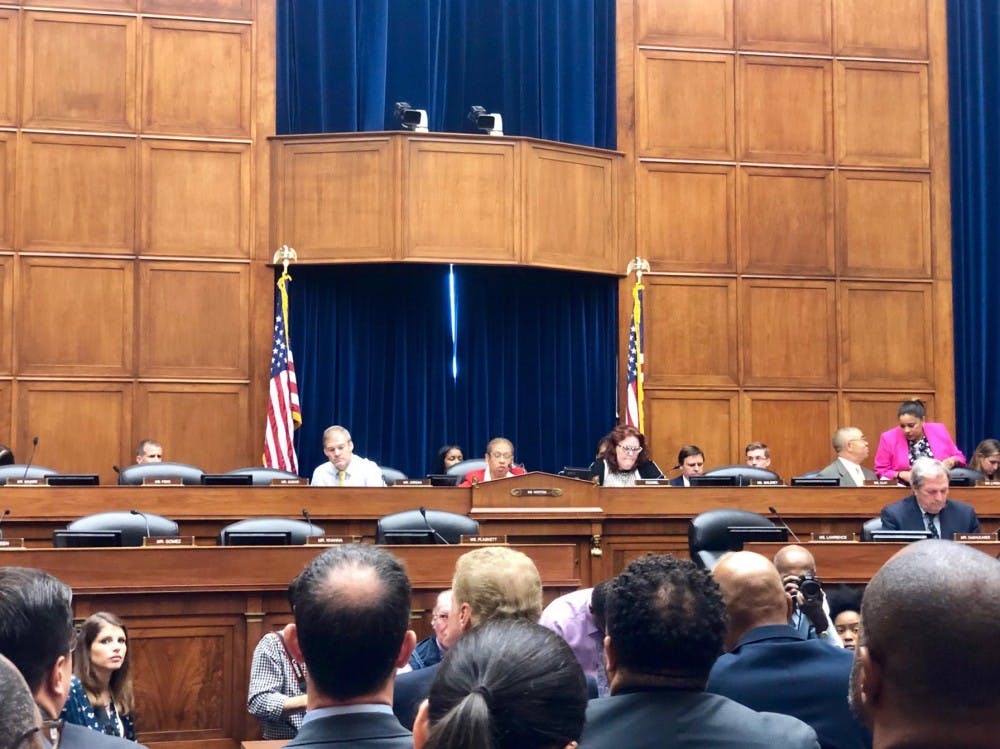The House of Representatives held its first hearing on D.C. statehood in 26 years on Sept 19. The goal of the hearing was to pass a resolution to make D.C. the 51st state.
The Washington D.C. Admission Act, H.R. 51, was introduced by Rep. Eleanor Holmes Norton (D-D.C.), the District’s non-voting delegate, in January.
The bill would create the 51st state out of the District’s eight wards, giving more than 700,000 residents voting representation that citizens living in the 50 states already have, including two senators and at least one representative in the federal government. Areas such as the U.S. Capitol, monuments and the National Mall would remain under federal jurisdiction.
“There has been a recent rise in student interest in D.C. statehood because the national mood of the issue has shifted and there has been an increased interest among D.C. residents, too,” said Taylor Berlin, a senior and vice president of Students for D.C. Statehood on campus. Berlin is also one of D.C.’s youngest elected officials, representing AU on Ward 3D’s Advisory Neighborhood Commission.
The last time statehood legislation went up for a vote in 1993, H.R. 51 fell 153 to 277, with 105 Democrats joining 172 Republicans to kill the bill. Advocates credit decades-long advocacy and education campaigns for the uptick in support for statehood.
“This is a very simple issue actually – you either believe in American values or American rights or you don’t, you either believe in the phrase ‘Taxation without Representation’ or you don’t,” Charles Allen, D.C.’s Ward 6 councilmember said the morning of the hearing.
To many in attendance, the hearing was a turning point for D.C.’s struggle to become a state. D.C. statehood is much bigger than a political issue.
“The 750,000 plus people who currently live in our nation's capital do not have federal representation,” Berlin said. “It's ironic how people who live in the nation's capital – in what’s considered to be the seat of democracy in the world - do not have a right to vote or have any federal representation.”
Berlin believes statehood should become more of a bipartisan issue and that it is “unfortunate” that it has become more of a partisan matter.
“People have been preventing D.C. from being a state for 200-plus years now since the federal district was created,” Berlin said. “It's difficult to talk about D.C. Statehood without talking about the historical inequalities and historic racism that allowed this problem to exist in the first place … that was a historical barrier to statehood.”
AU students’ proximity to D.C. gives them a unique stake in the fight for statehood. At the event, freshman Hannah Richards said, “I am not a D.C. citizen right now, but I would like to be – I want to stay here after college and I think that it is very important to live in a place where you're accurately represented and have a voice in government.”
At the hearing, D.C. Mayor Muriel Bowser said, “This is America, and Americans are entitled to equal protection under the law, and that’s why we are demanding statehood.”
aclarke@theeagleonline.com





